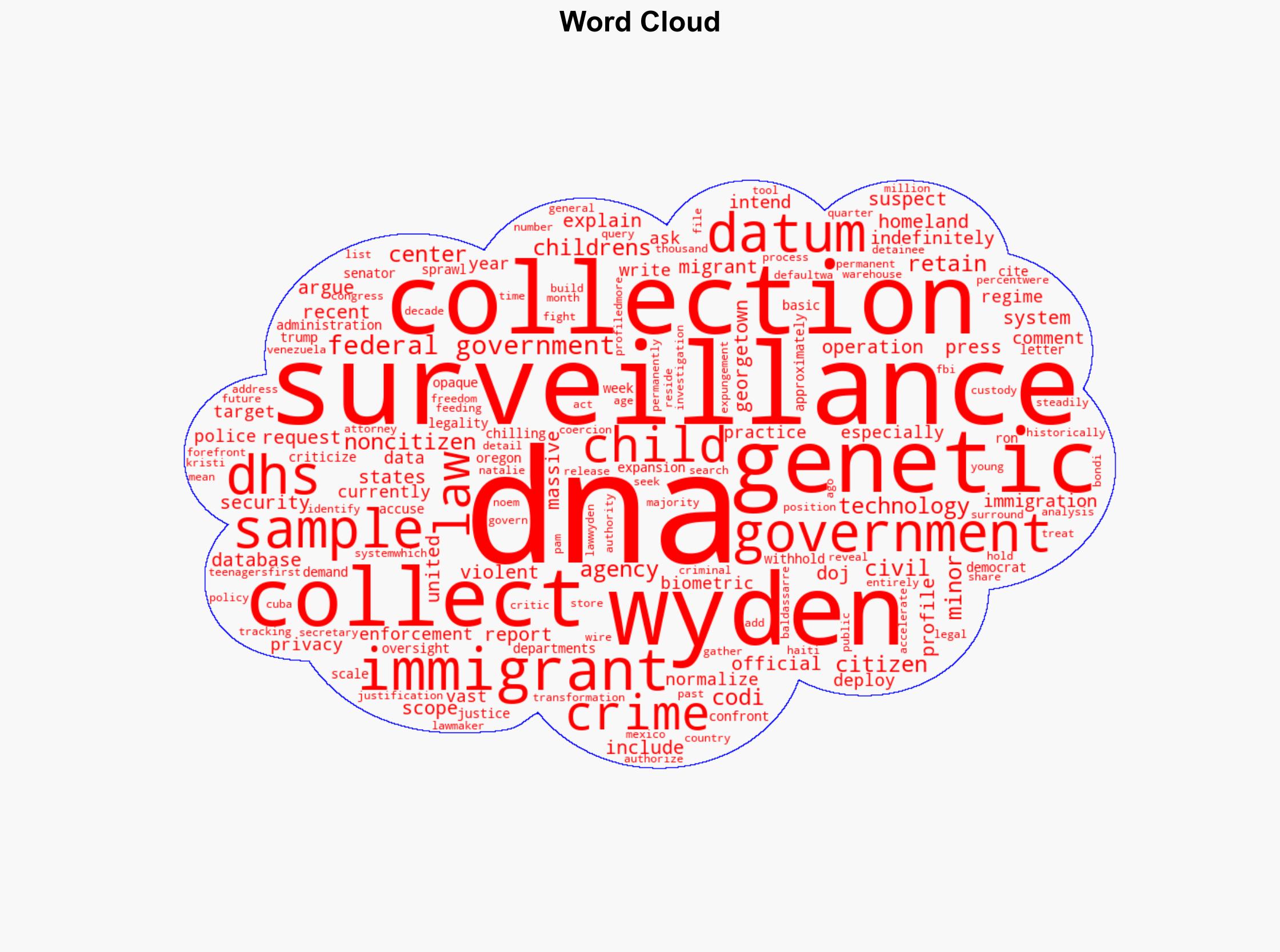DHS Faces New Pressure Over DNA Taken From Immigrant Children – Wired
Published on: 2025-07-16
Intelligence Report: DHS Faces New Pressure Over DNA Taken From Immigrant Children – Wired
1. BLUF (Bottom Line Up Front)
The Department of Homeland Security (DHS) faces scrutiny over its collection of DNA from immigrant children, raising concerns about legality, oversight, and the potential for misuse. The practice has been criticized for its expansive scope and lack of transparency, with DNA profiles being stored indefinitely in the FBI’s CODIS database. This report recommends a review of policies governing DNA collection to ensure compliance with legal standards and to address privacy concerns.
2. Detailed Analysis
The following structured analytic techniques have been applied to ensure methodological consistency:
Causal Layered Analysis (CLA)
Surface events involve the collection of DNA from immigrant children, primarily from countries like Mexico, Venezuela, Cuba, and Haiti. Systemic structures include the integration of these DNA profiles into the CODIS database, traditionally used for violent crime suspects. The worldview reflects a shift towards treating noncitizens as potential criminal suspects, while the myth suggests a broader narrative of surveillance and control.
Cross-Impact Simulation
The collection of DNA could strain diplomatic relations with countries of origin and impact immigration policies. It might also influence public perception and trust in government agencies, potentially leading to increased scrutiny and legal challenges.
Scenario Generation
In a best-case scenario, policy revisions ensure ethical DNA collection practices, enhancing transparency and public trust. A worst-case scenario involves legal challenges and international backlash, complicating immigration enforcement and diplomatic relations. The most likely scenario sees incremental policy adjustments with ongoing public debate.
3. Implications and Strategic Risks
The indefinite retention of DNA profiles poses privacy risks and potential misuse for non-criminal purposes. This practice could lead to increased surveillance, setting a precedent for broader biometric data collection. There is a risk of mission creep, where measures initially targeting noncitizens could extend to broader populations, impacting civil liberties.
4. Recommendations and Outlook
- Conduct a comprehensive review of DNA collection policies to ensure they align with legal and ethical standards.
- Implement transparent oversight mechanisms to monitor DNA data usage and retention.
- Engage in diplomatic dialogue with affected countries to mitigate international tensions.
- Scenario-based projections: Best case involves policy reform enhancing transparency; worst case sees legal challenges and strained international relations; most likely scenario involves gradual policy adjustments.
5. Key Individuals and Entities
Ron Wyden, Pam Bondi, Kristi Noem, Natalie Baldassarre, David Cole
6. Thematic Tags
national security threats, privacy concerns, immigration policy, biometric data collection





